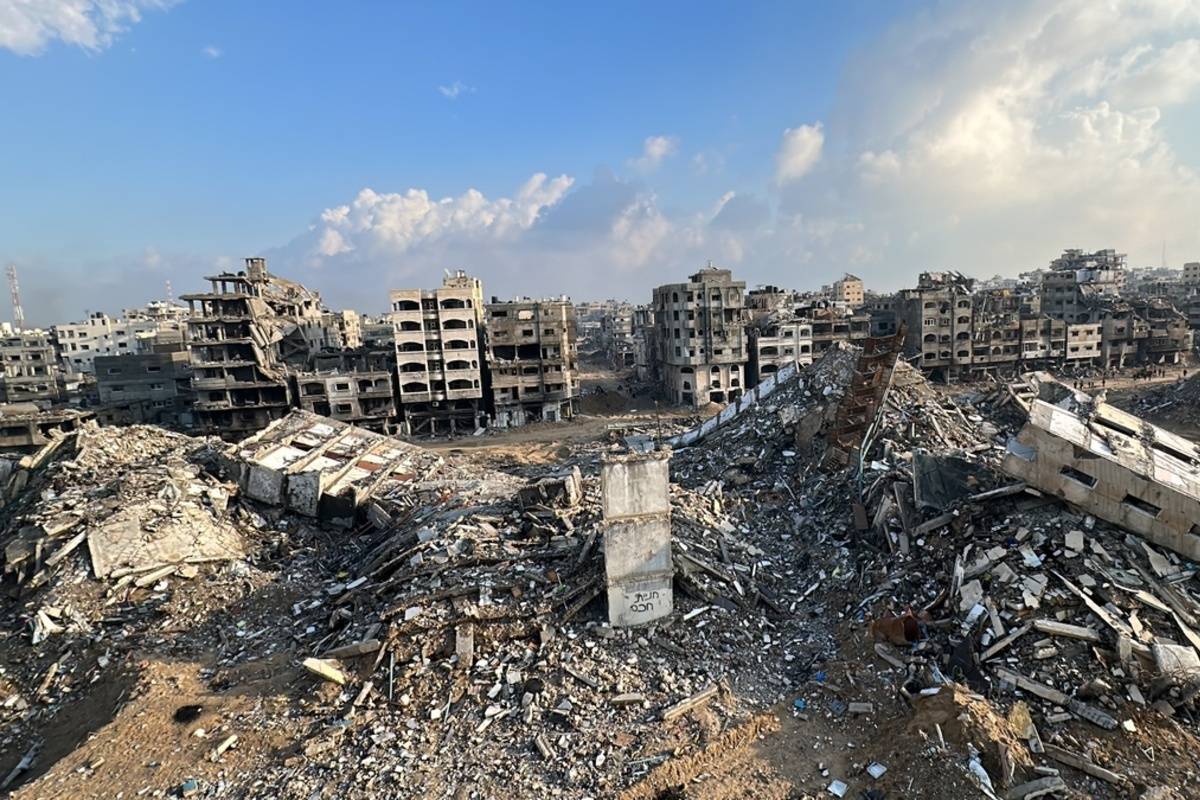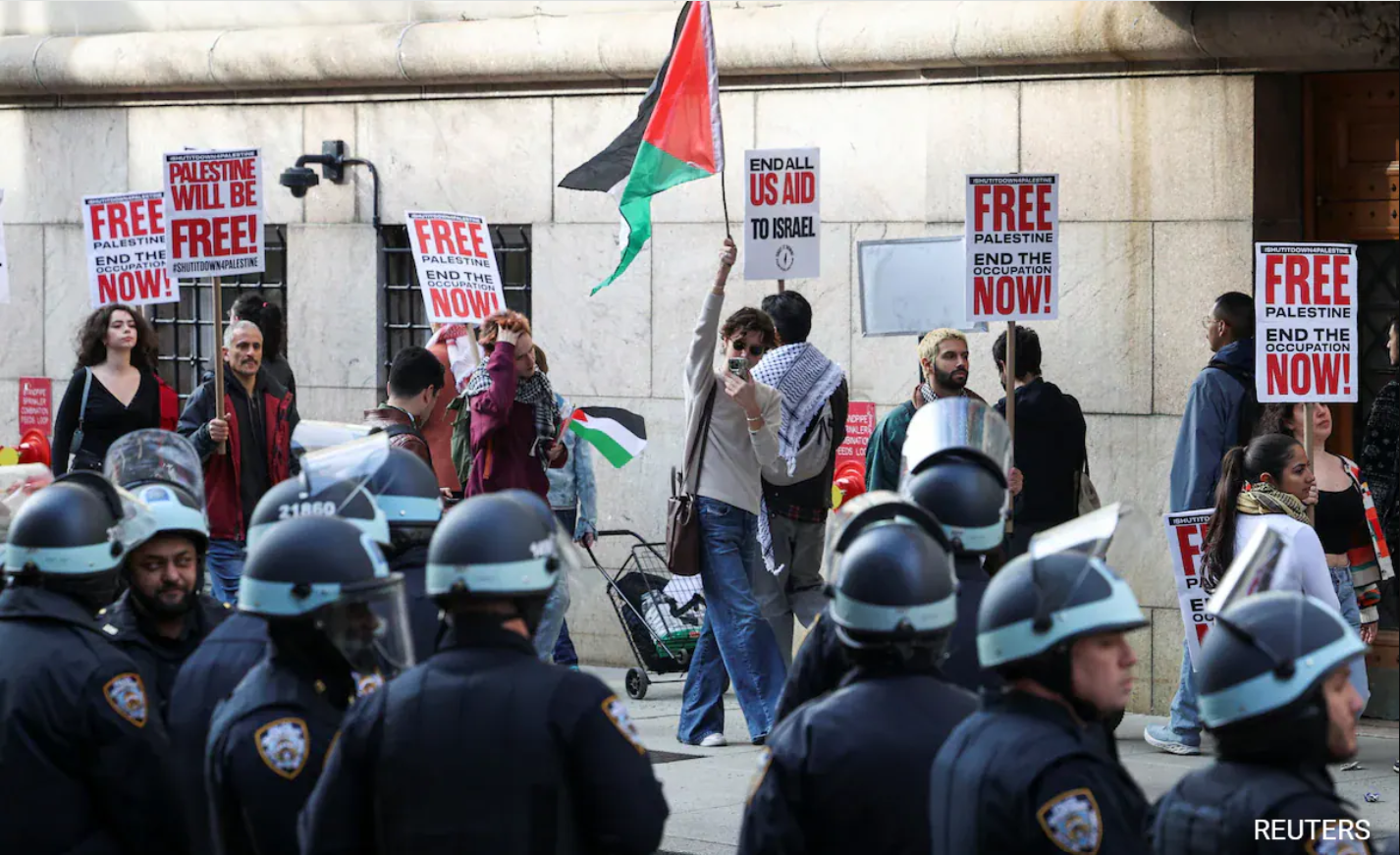
Hard times are exactly as they sound. But when these ‘hard times’ continue for close to 60 years, they become basically intolerable. Ask any Palestinian living under Israel’s brutal occupation and they will erase any doubts that ‘hard times’ doesn’t even come close.
Take this testimony from a woman, a teacher living in the northern West Bank city of Tubas, who told MIFTAH about the terrifying night the Israeli occupation army raided her home. The raid took place on February 23, 2022 at around 4:30 am. This is not unusual for occupation forces, which are trained to storm homes with families quietly sleeping in their beds, in the wee hours before dawn, to instill fear and panic and turn their lives and homes upside-down in a second.
This teacher, Maha, shares her home with her older sister, Dua’ and her elderly mother. She and her sister are also blind. “I was awakened by my sister yelling: who are you? Are you djinn or human? Maha, answer me! Is that you?” There was no answer. “I was still in bed when I felt something – I was not sure what – pull off my covers and push me to the floor. I was terrified and started calling out for Dua’. I could feel there were people in the room, all around me, right before one of them began to beat me. I was so scared and called out to my mother but I couldn’t hear her voice.”
Maha spent half an hour in sheer terror, alone, confused, being beaten and not knowing the fate of her elderly mother, as the Israeli trespassers ransacked her home, petrifying them all. “I cannot begin to describe the terror I felt; I have never felt that way my whole life,” she recounts.
Finally, after what seemed to be an interminable period, she heard the voice she was longing for the most: her mother. “She was screaming to us, telling us that the intruders were Israeli soldiers and that they had a large dog with them.” This terrified her even more, especially since she was forced to remain on the floor and she could hear her sister’s cries. “I remember thinking: if only I could see, to know what was happening around me, I would then go back to being blind. I just wanted to help and calm my sister down. I just wanted to help my mother. The soldiers made me totally incapacitated.”
Maha’s story is one of hundreds of thousands of Palestinians who have endured grueling house raids, arbitrary arrests, home demolitions and settler attacks. Still, even when there are no ‘active’ Israeli assaults on Palestinians, merely existing under Israeli military rule is anything but normal. Every Palestinian in the West Bank, including East Jerusalem, and the Gaza Strip is all too familiar with the hundreds of Israeli checkpoints interrupting the geographic flow between Palestinian cities, villages and camps. They are accosted by the sight of the illegal annexation wall, cutting along, and in places, deep into, West Bank territory, severing Palestinians from their farmlands, from their loved ones, from Jerusalem and from historic Palestine. They must apply for permits to build, to travel, to seek medical attention or to visit their loved ones in Israeli prisons, all at the whim of Israeli occupation authorities.
The raid on Maha’s house that night ended in zero arrests, but hundreds of thousands of other Palestinians have not been as lucky. Since Israel’s occupation of the West Bank, including East Jerusalem, and Gaza Strip in the June, 1967 war, over one million Palestinians have been illegally arrested by its occupation forces. That is a staggering number for a population that stands at approximately 5.3 million, according to Palestinian Central Bureau of Statistics estimates for 2022. At present, there are nearly 5,000 Palestinian men, women and children being held in Israeli prisons and detention centers inside the West Bank and in Israel, the latter illegal under international law, which does not allow an occupying party to imprison their ‘subjects’ outside of the territories it occupies.
International law has never been an obstacle for Israel, something the Palestinians know all too well. According to testimonies collected by MIFTAH field researches, collected between 2020 and 2022, Israeli occupation forces never presented a legal search or arrest warrant during the raids. All of the testimonies stated that large numbers of soldiers participated in the raids, sometimes exceeding 20 or 30, irrespective of children, women or the elderly. Once detained, the men, women and oftentimes children, are taken to Israeli detention centers, sometimes held for days on end without having access to legal counsel, mistreated, deprived nutritious food, sleep, appropriate clothing and in the worst case, tortured.
The detainee is then brought before a “kangaroo” Israeli military court, which for Palestinians, has an almost 100% conviction rate. They are charged with ‘crimes’, all related to some form of resistance to the occupation and summarily sentenced, or placed under administrative detention. While this form of detention, which allows Israeli authorities to hold Palestinians without charge or trial, is technically not banned under international law, it is never meant to be renewed for years, as is the case with the Palestinians.
The nightmare does not stop there, however. For the families of prisoners, visiting their loved ones in Israeli prisons is always a grueling process. According to a January, 2023 MIFTAH report on Israeli violations of Palestinian rights in the West Bank, affidavits from families visiting imprisoned relatives in Israeli prisons reported that on average, the entire process takes between 12-14 hours. What’s more, once they arrive, the actual visit only lasts 45 minutes and takes place in rooms with no direct contact and a glass wall separating them at all times. In a 2019 testimonial, documented by the Israeli rights organization B’Tselem, 80-year old Hilweh Shabaneh, from the Ramallah-area village of Sinjil sums up the horrific journey to visit her son in the Nafha Prison.
“From four o’clock in the morning to nine o’clock at night, 17 long hours of dragging around from one place to another, from one bus to another and one security check to another, getting on, getting off, on and off. Even if I were made out of iron I would collapse”.
Shabaneh then unwittingly sums up Palestinians’ sentiments regarding life under Israeli military occupation, overall.
“I swear to God, I wouldn't wish this on anybody.”











